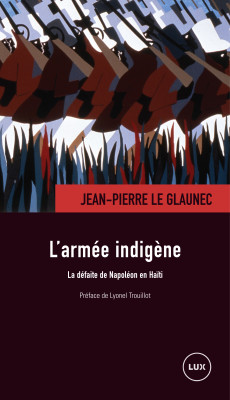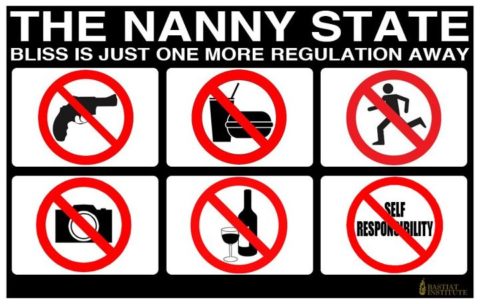Rex Krueger
Published 14 Jul 2021What does it take to restore the worlds rarest handplane? (Plus restoration tips and tricks.)
More video and exclusive content: http://www.patreon.com/rexkrueger
Get your plane restoration supplies: (Scroll Down )*affiliate links below
3-in-1 Oil: https://amzn.to/3eeAunO
Mineral Spirits: https://amzn.to/3ib2BFo
Little Punch Set: https://amzn.to/3kewrLN
Small Hammer: https://amzn.to/3kgUYjr
Boiled Linseed Oil: https://amzn.to/2VBhBol
Clear Shellac: https://amzn.to/2U895wR
Paste Wax: https://amzn.to/3hDZarH
Acid Brushes: https://amzn.to/3yVvM63
Steel Rule: https://amzn.to/3hDL0qL
Fine Wire-Wheel kit for drill-press: https://amzn.to/3B19tOj
Red Scotch-Bright Wheels: https://amzn.to/3khnqBN
0000 steel wool: https://amzn.to/3xEytJf
150 Sand Paper: https://amzn.to/3xEc5zu
(expensive and totally worth it)
Bench Grinder: https://amzn.to/3hCwMpS
(This is mine and I love it, but you can get by with a cheaper one.)
Wire Wheel for Bench Grinder: https://amzn.to/2TdVUtU
Respirator: https://amzn.to/3wzemLb
Cartridges: https://amzn.to/2U8H4VW
(ESSENTIAL. Do NOT breathe the dust from restoring planes!)———————————————————————-
Get My New Book, Everyday Woodworking: https://amzn.to/3uQtdQr
———————————————————————-
Related Videos
Fast plane restoration with BENCH GRINDER
https://youtu.be/P6-zQSFUl84Thrift store wooden planes: total restoration, perfect shavings.
https://youtu.be/IzccbYYqwbwAre transitional planes any good?
https://youtu.be/KvgAjZnM7og———————————————————————-
Stanley No. 1 Videos by James Wright
Why Is This Worth $1000
https://youtu.be/nsivK-NGpEEHow to Restore a Stanley No 1 Hand Plane
https://youtu.be/7xxHjV8QmIM———————————————————————-
Music: https://www.bensound.com
———————————————————————-
Sign up for Fabrication First, my FREE newsletter: http://eepurl.com/gRhEVT?
———————————————————————-
Wood Work for Humans Tool List (affiliate):
*Cutting*
Gyokucho Ryoba Saw: https://amzn.to/2Z5Wmda
Dewalt Panel Saw: https://amzn.to/2HJqGmO
Suizan Dozuki Handsaw: https://amzn.to/3abRyXB
(Winner of the affordable dovetail-saw shootout.)
Spear and Jackson Tenon Saw: https://amzn.to/2zykhs6
(Needs tune-up to work well.)
Crown Tenon Saw: https://amzn.to/3l89Dut
(Works out of the box)
Carving Knife: https://amzn.to/2DkbsnM
Narex True Imperial Chisels: https://amzn.to/2EX4xls
(My favorite affordable new chisels.)
Blue-Handled Marples Chisels: https://amzn.to/2tVJARY
(I use these to make the DIY specialty planes, but I also like them for general work.)*Sharpening*
Honing Guide: https://amzn.to/2TaJEZM
Norton Coarse/Fine Oil Stone: https://amzn.to/36seh2m
Natural Arkansas Fine Oil Stone: https://amzn.to/3irDQmq
Green buffing compound: https://amzn.to/2XuUBE2*Marking and Measuring*
Stockman Knife: https://amzn.to/2Pp4bWP
(For marking and the built-in awl).
Speed Square: https://amzn.to/3gSi6jK
Stanley Marking Knife: https://amzn.to/2Ewrxo3
(Excellent, inexpensive marking knife.)
Blue Kreg measuring jig: https://amzn.to/2QTnKYd
Round-head Protractor: https://amzn.to/37fJ6oz*Drilling*
Forstner Bits: https://amzn.to/3jpBgPl
Spade Bits: https://amzn.to/2U5kvML*Work-Holding*
Orange F Clamps: https://amzn.to/2u3tp4X
Screw Clamp: https://amzn.to/3gCa5i8Get my woodturning book: http://www.rexkrueger.com/book
Follow me on Instagram: @rexkrueger
July 15, 2021
Restoring the Holy Grail of Vintage Planes (Stanley No. 1)
Haitian independence was bought with blood … a lot of blood
Theodore Dalrymple recently read a book by Sherbrooke University professor Jean-Pierre Le Glaunec on the Battle of Vertières which ended Napoleon’s attempt to recapture the island and re-enslave the population:
Haiti is one of those countries that you can leave after a visit, but that never quite leaves you. Its history is so heroic and so tragic, its present condition often so appalling, its culture so fascinating and its people so attractive, that even if it does not become the main focus of your intellectual attention, you never quite lose your interest in it, or in its history.
That is why, recently in a Parisian bookshop, I bought a book about the Battle of Vertières, the last gasp of the expedition sent out by Napoleon to Haiti, or Saint-Domingue as it was still known (“The Pearl of the Antilles” by those who profited from it), to return it to the condition of a vast slave plantation. General Leclerc, Napoleon’s brother-in-law, commanded, and 50,000 French soldiers, including Leclerc, lost their lives in this ill-fated and, from our current moral standpoint, malign expedition. Six weeks after its final defeat at the hands of the former slaves, Haiti, or Hayti — under the first of its many dictators, Jean-Jacques Dessalines, who made himself emperor and was assassinated two years later — declared its independence from France.
The book, titled L’Armée indigène, “The Native Army”, was by a French historian, Jean-Pierre Le Glaunec, who now teaches at Sherbrooke University in Quebec. The book recounts not only the history of the battle itself, which took place on 18 November 1803, but how it has been remembered, or forgotten (especially in France), in the subsequent two centuries, and the purposes to which the memory has been put.
The author is a specialist in Haitian and American history. His fundamental historical outlook is very different from mine, but that did not reduce my pleasure in his book, for he writes well and marshals much interesting evidence, the fruit of diligent original research in primary sources. And it seems to me that no one can fail to be moved by the heroism and determination of the former slaves to defend their newfound freedom from the attempt to return them to servitude. The slave colony of Saint-Domingue had been among the cruellest ever known; the methods of Napoleon’s expeditionary army grew more and more vicious as it suffered repeated decimations. That history has its ironies — it is possible that, had the slave revolution failed, Haiti would now be more prosperous than it is, like Guadeloupe or Martinique — does not detract from the righteousness of the cause of the former slaves. They could not be expected to foresee the two centuries of failure, poverty, and oppression to come. Besides, the dignity conferred by the victory cannot be simply set against its deleterious long-term material consequences: Man does not live by GDP alone.
The rest of the article delves into Professor Le Glaunec’s other recent book on George Floyd’s death and fails to show the same intellectual honesty and willingness to face unpleasant facts that his Haitian history demonstrates.
In other words, Professor Le Glaunec, who makes much of his dispassionate resort to historical evidence by contrast with his opponent, reveals himself to be at least as parti pris as that opponent. He displays a lack of curiosity about George Floyd that surely derives from his political standpoint. As for the dedication to the memory of George Floyd, it is morally obtuse: for a man does not become good by being wrongfully killed. A mother loves her son because he is her son, not because he is good, and therefore the grief of his family is understandable and easily sympathised with; but for others to turn him into what he was not, a martyr to a cause, is to display at once a moral and an intellectual defect.
The connection between historical explanation and individual morality is nowhere more complex than in Haiti. The victor of Vertières, the former slave Dessalines, was declared dictator for life, with the right to choose his successor, in the very document that announced the independence of Haiti and the freedom of its population. Dessalines then undertook a policy that today would be called genocide: he ordered that every white settler, man, woman, and child killed (about 6000 in all) who remained in the country after the last of the French troops should be killed, and his orders were carried out. The truly atrocious conduct of the French explained this genocide no doubt, but did it justify it? To answer in the affirmative is to claim that there are good, or justified, genocides; to answer no is to be accused of a lack of psychological insight into the righteous anger of Dessalines and others, or of a lack of sympathy for the state of mind of the victims of slavery.
The death of George Floyd was similarly wrong; but that does not mean that the reaction to it was right.
Goodbye Lenin, Hello Jazz! | B2W:ZEITGEIST! I E.22 Winter 1924
TimeGhost History
Published 14 Jul 2021The winter of 1924 sees the death of not only Vladimir Lenin but also the Ottoman Caliphate. However, it also sees something fresh and completely unique enter the American mainstream. George Gershwin has given the Jazz Age a soundtrack.
(more…)
Out: “War is the health of the state”, In: “Pandemic restrictions are the health of the nanny state”
British MP Andrew Lewer on the inability (and determined unwillingness) of western governments at all levels to back away from all the restrictions they’ve been able to impose on their citizens since the start of the Wuhan Coronavirus pandemic:
The list goes on. By the government’s own calculations it [banning advertising for “junk food” on TV] will reduce children’s diets by a meagre five calories a day – the equivalent of a third of a cherry tomato. And watch out for those Government figures. Pardon the pun, but given that they add weight to the arguments of those opposing their intrusiveness into our lives, would anyone be amazed if new and revised figures emerged during the course of detailed legislation? But even if the impact of these proposals was amplified by “the science”, it would still come at too high a cost to individual freedom and liberty.
And this is just the thin end of the wedge. For a moment back in winter, it looked like we had woken up and smelt the full English breakfast. It was reported that the advertisement ban would be discarded, which allowed the free market minded to hope, especially given the disbanding of Public Health England, that this might signal pushback against nanny state intrusion. Alas, no.
The appetite for ill-conceived, unworkable ideas is growing: we have plans to force pubs to disclose the number of calories in every drink they serve, just as they begin to fill their tills after months of lockdown. Plans to end deals like “buy one get one free” on foods high in fat, sugar and salt – a regressive measure that will hit the poorest consumers hardest while doing nothing to reduce our waistlines. Plans for further legislation around nutritional labelling – adding cost, probably not adding clarity.
We left the EU in part as a reaction to over-regulation. I remember well during my time as an MEP how skewed towards large corporations the regulatory regime could be in Brussels. If, having taken the difficult and painful decision to leave the bloc, we fail to roll back the overreach then people will start to ask what the last four years was all about. If freedoms regained are never applied, then what was the point? The food laws will diminish freedoms in everyday life, not just those of the important, but more esoteric and common room kind, that our political elites from time to time do remember to respect.
History Summarized: The Golden Age of Piracy
Overly Sarcastic Productions
Published 4 May 2015Blue’s back, and this time he’s hoisting the black flag and preparing to board. It’s okay: he’s got a letter of marque.
QotD: Macaulay’s prescription for ruling India
In 1835 Thomas Macaulay had argued in his famous essay Minute on Education that “We must at present do our best to form a class who may be interpreters between us and the millions whom we govern; a class of persons, Indian in blood and colour, but English in taste, in opinions, in morals, and in intellect. To that class we may leave it to refine the vernacular dialects of the country, to enrich those dialects with terms of science borrowed from the Western nomenclature, and to render them by degrees fit vehicles for conveying knowledge to the great mass of the population.”
Macaulay was arguing that British Government should spend money on educating those it found under its rule. So it came to be as Britain ruled over the most heavily-populated and most valued part of its empire for another century.
Jawaharlal Nehru, the Prime Minister who led India to independence from Britain, studied at Trinity College, Cambridge, and at the Inner Temple, and was closely connected to the Fabian Society. Nehru’s rival, Muhammad Ali Jinnah, the founder of Pakistan, studied law at the Lincoln’s Inn, and was strongly influenced by English utilitarianism and French positivism. Nehru was an agnostic who requested a secular burial (this was denied him), while Jinnah was a gin-drinker whose religious attachments were more a matter of identity than belief.
Nehru and Jinnah led India and Pakistan to independence as the brown-skinned Westerners Thomas Macaulay had envisioned a century earlier. South Asian in appearance and pedigree, the leaders of these two nations nevertheless personified a fundamental truth about the Western orientation of the new Asian states. Pakistan was aligned with the United States, while socialist India was nominally non-aligned but clearly tilted toward the Soviet bloc. Though the populace of these nations were mostly illiterate, poor and detached from the cosmopolitan currents of the world, their elites were integrated among the English-speaking peoples. Nehru’s daughter, Indira Gandhi, attended Somerville College, Oxford. His grandson, Rahul Gandhi, whose mother is Italian, studied at Harvard and Trinity College.
Razib Khan, “Why the West lost India’s culture wars”, UnHerd, 2021-04-13.







